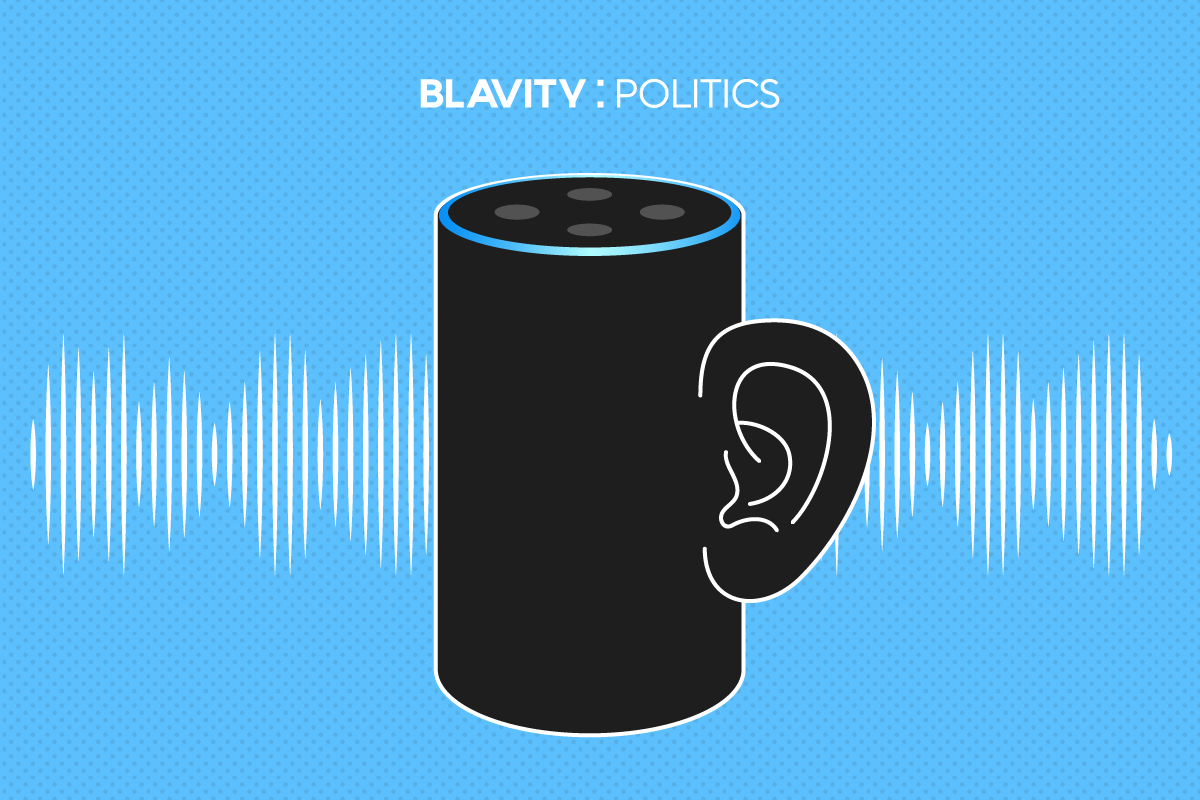These days, the notion of privacy is of the utmost importance in the digital world. Amazon recently came under fire due to their virtual assistant Alexa. While scores of people around the world have purchased Alexas to make their everyday lives more convenient, there are many who believe its microphones could be used to listen in on their lives.
Well, it turns out the latter’s concerns aren’t some tinfoil hat conspiracy theory. According to Bloomberg, Amazon has an international network of thousands of eavesdroppers listening to audio secretly recorded by the e-commerce giant’s Echo systems, though the company claims they are listening to and collecting audio files to improve Alexa’s comprehension of human speech patterns.
"We only annotate an extremely small number of interactions from a random set of customers in order to improve the customer experience,” Amazon said in a statement. “We have strict technical and operational safeguards, and have a zero tolerance policy for the abuse of our system. Employees do not have direct access to information that can identify the person or account as part of this workflow."
It would also seem the monitoring of Alexa requests has some benefit for society. According to the Bloomberg report, two employees overheard what they believed to be sexual assault while listening. Though Amazon claims to have imposed a set of procedures for workers to follow when they come across serious situations like that, the two employees based in Romania say they were told: “it wasn’t Amazon’s job to interfere.”
Regardless of Amazon’s intent, skeptics are still justified in their reluctance to trust companies that are seemingly surveilling their customer bases. These revelations appear to be a manifestation of official government reports that came out in 2012, concerning everyday devices being used to collect intelligence on American people. That year, then-CIA director David Petraeus, addressed the In-Q-Tel CEO Summit about the Internet of Things (IoT) — a network of physical objects — being used to collect data.
Petraeus's words were reinforced four years later when the “Worldwide Threat Assessment of the U.S. Intelligence Community” was presented by Harvard University to the Senate Armed Services Committee. Included in the report was testimony by former U.S. Director of National Intelligence James Clapper on smart devices in the IoT being used to spy on users.
“‘Smart’ devices incorporated into the electric grid, vehicles— including autonomous vehicles — and household appliances, are improving efficiency, energy conservation, and convenience,” Clapper said. “However, security industry analysts have demonstrated many of these new systems can threaten data privacy, data integrity, or continuity of services. In the future, intelligence services might use the IoT for identification, surveillance, monitoring, location tracking, and targeting for recruitment, or to gain access to networks or user credentials.”
This is not to say that Amazon is working with the government to spy on customers. In fact, edge providers, a web service for customers, have been the subject of bipartisan scrutiny in D.C. over security issues and data privacy. Government officials from both sides of the aisle have questioned Amazon founder Jeff Bezos about the design and privacy components of Echo devices and their Alexa software. In June, Senators Jeff Flake (R-Arizona) and Chris Coons (D-Delaware) wrote to Bezos with concerns.
“Recent reports have raised serious questions about how Amazon collects and stores voice data, and what steps are being taken to make sure this information is not shared without consumers’ consent," Coons said.
“Since these technologies are so new, it’s unclear how these devices work and what steps are being taken to protect consumers’ privacy," Flake added. "I look forward to working with Amazon and other companies as we continue to explore ways in which these technologies can flourish.”
However, there is an imminent threat to those who use Alexa, as well as Google’s Home and Apple’s HomePod. According to ABC Action News I-Team, there is a good chance these devices are recording you even when they are not in use. The investigative team used Amazon’s privacy dashboard to access his Amazon audio data. They discovered that not only had the user’s Alexa requests been recorded, but also dozens of other clips that should not have been recorded. Though the audio clips labeled “Text not available – Audio is not intended for Alexa,” were less than a second in duration and were deemed “undecipherable,” the recording aspect is concerning to many.
It is evident these digital assistants are always listening and recording and so companies like Amazon need to be more transparent.
As Chicago Tribune writer Leonid Bershidsky wrote: "AI is supposed to be good at pattern recognition and natural language processing. However, it's all but impossible to train a neural network to recognize speech or faces with certainty. Algorithms that have to interact seamlessly with humans need to be constantly retrained to allow for changes in slang, population movements that bring new accents, cultural phenomena, and fashion trends.”
In other words, algorithms cannot work without humans constantly manipulating them to keep up with the times, and this manipulation should be more available in communication to consumers.
There is some hope. Despite the lack of transparency, you can take steps to protect your privacy on Alexa, though Amazon doesn’t make it simple. The protection measures can be found by going into the Alexa app on your cell phone and clicking on settings. From there, go to Alexa Account, then Alexa Privacy. If you are looking to delete your data, find “Manage Smart Home Devices History” and make it disappear. To do away with voice recordings used to develop the platform, find “Manage How Your Data Improves Alexa” and make it happen.
Now, check these out:
Self-Driving Cars Aren't Good At Seeing Pedestrians With Dark Skin, According To New Study
